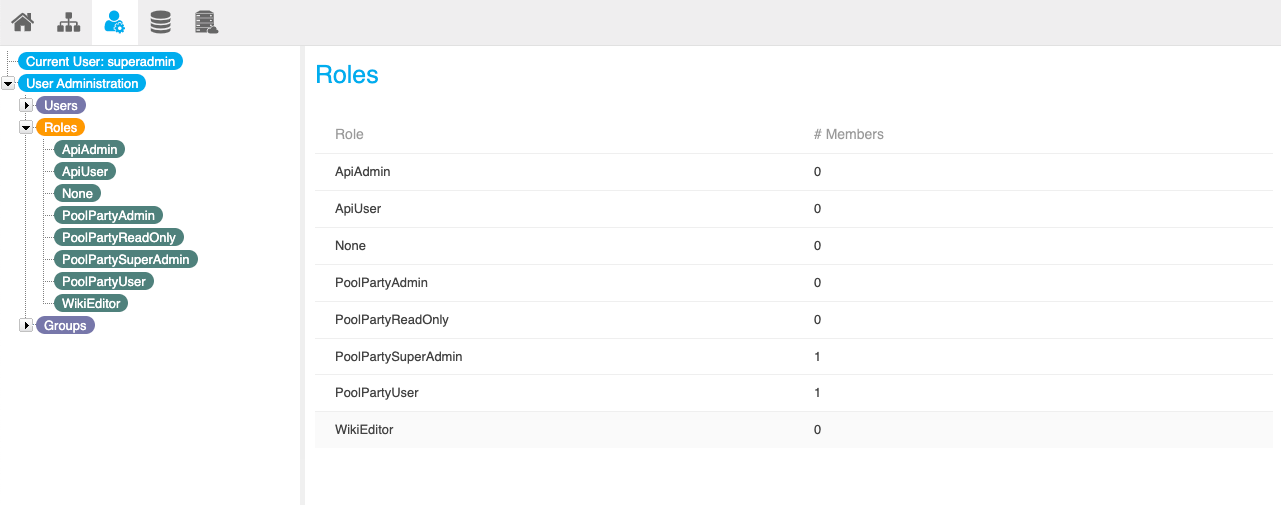User Roles in PoolParty
User Roles in PoolParty
This section contains a short guide on available user roles in PoolParty and their effect when assigned to a user.
User roles define different access levels for a PoolParty Server.
In PoolParty the following roles exist:
PoolPartyReadOnly
This role allows logging in to PoolParty and open projects with read-only access.
PoolPartyUser
This is the default user role in PoolParty allowing users to log in to PoolParty and open and edit projects.
PoolPartyAdmin
This role allows you in addition to the PoolPartyUser role to create and delete projects for the assigned groups and gives users access to the Advanced menu, where several advanced configuration functions are available. Also, you need the PoolPartyAdmin role to access the Ontology Management and create and edit ontologies and custom schemes.
PoolPartySuperAdmin
This role allows you in addition to the PoolPartyAdmin role access to the User Management and the Snapshot Dashboard.
WikiEditor
This role allows only access to the Wiki frontend of a project. Users with this role cannot log in to PoolParty.
ApiUser
This user role allows read and write access to the PoolParty API. Users with this role cannot log in to PoolParty.
ApiAdmin
In addition to the rights ApiUsers have, users with this role can for instance create and modify ontologies, delete and create projects and create, delete and restore snapshots. Users with this role cannot log in to PoolParty.
None
Depending on configuration, this role might get automatically assigned to users managed by an LDAP IDP. Users with this role cannot use PoolParty.
 |
The permissions in PoolParty are separated into several different actions that are part of these roles and, depending on the role's access level, are allowed or restricted.
Details about the existing user permissions find in these topics:
Note
The behavior of the WikiEditor role only applies if you set the frontend access level for the server to 'Login'.
You can control your users programmatically via API: Web Service Method: Request User Groups and Web Service Method: Request User Roles and Groups.
Tip
If you would like to learn more about this topic, please watch this PoolParty Academy Tutorial video: